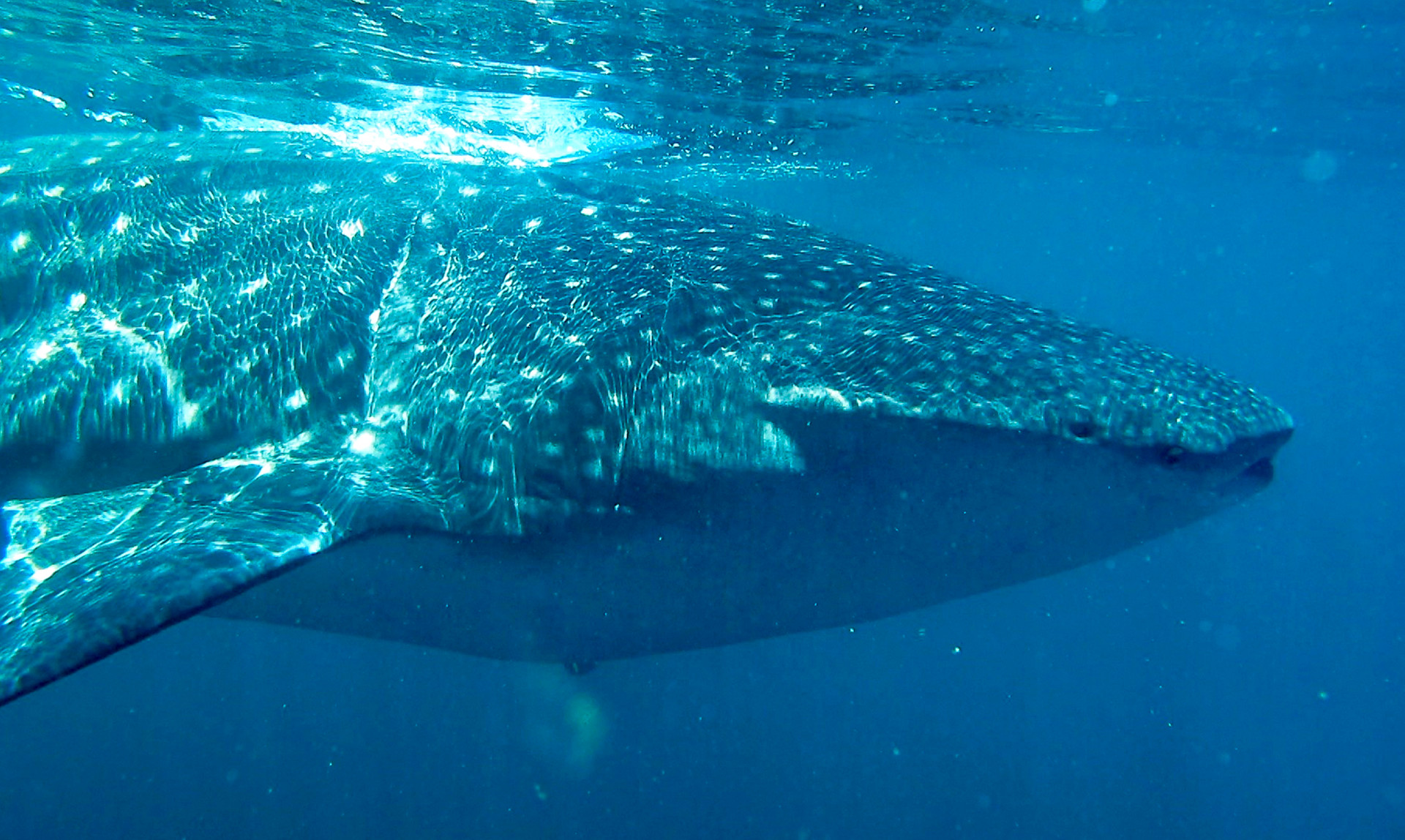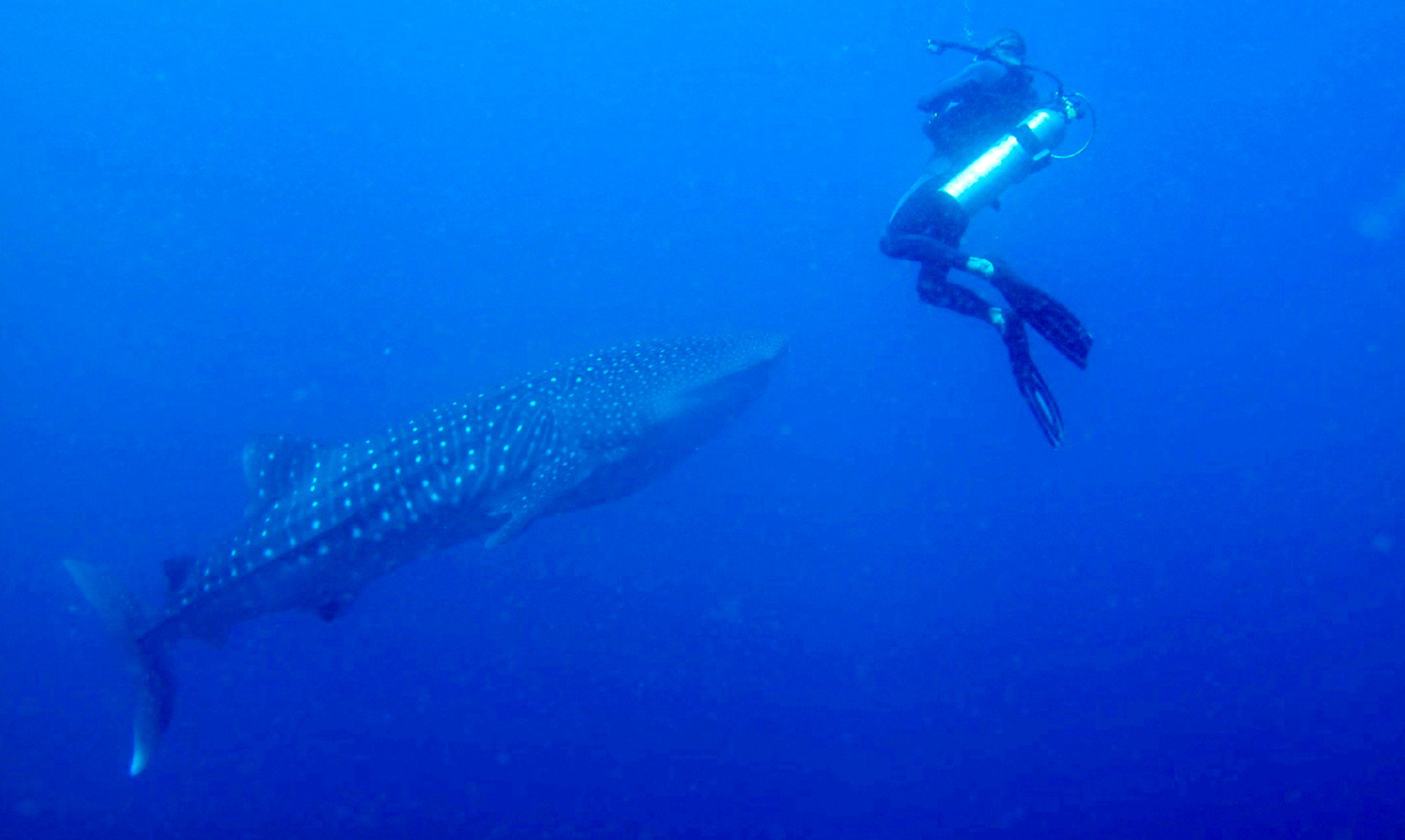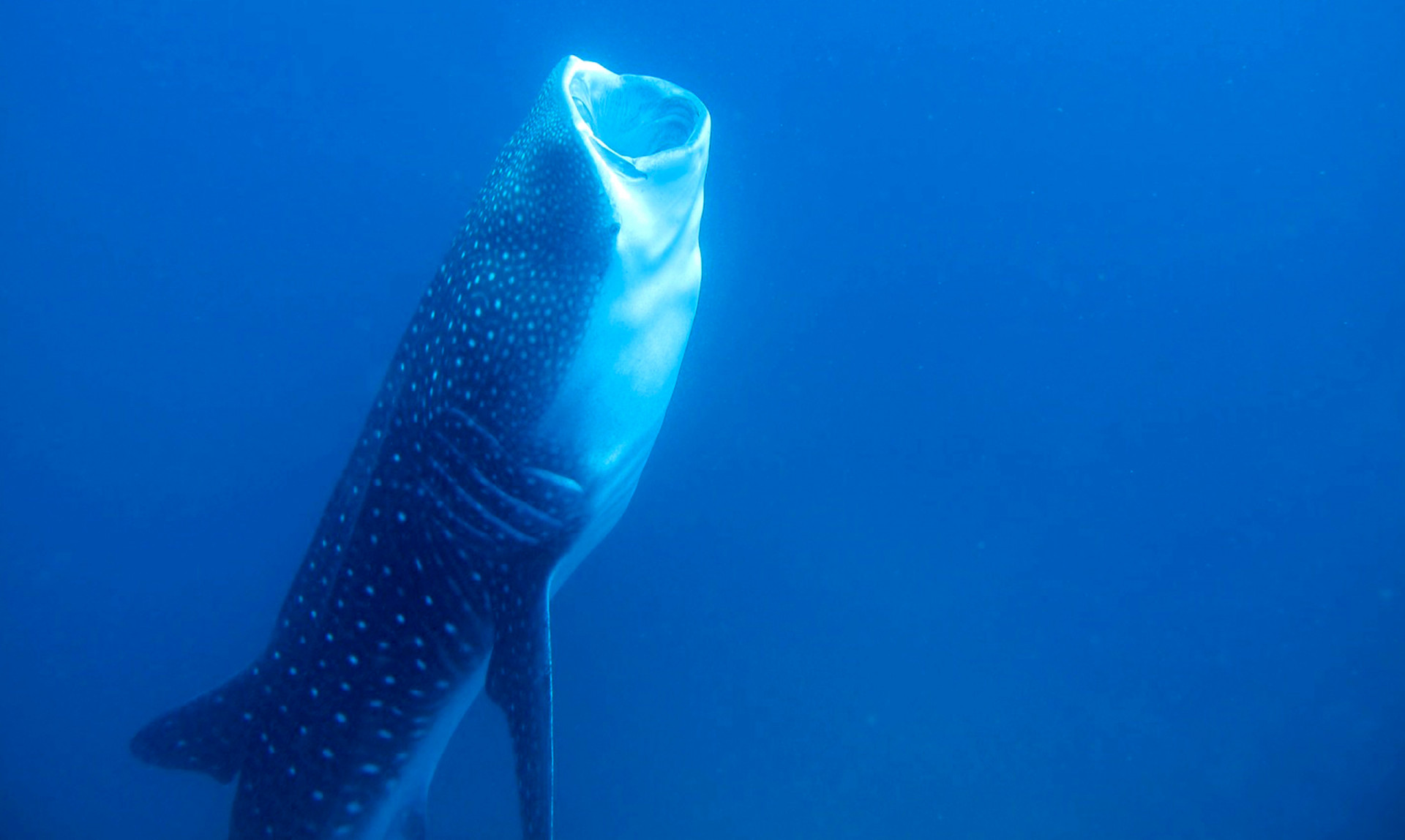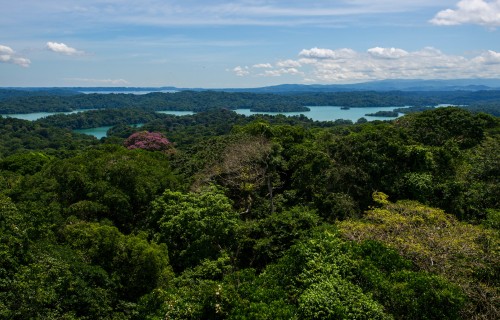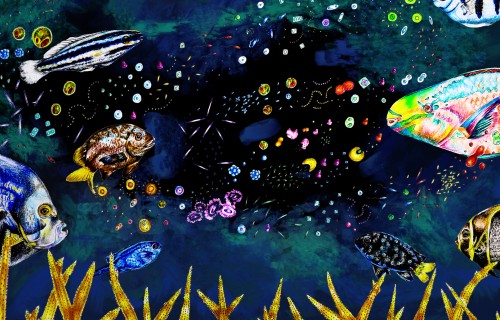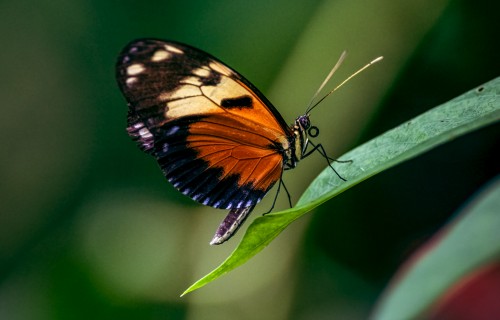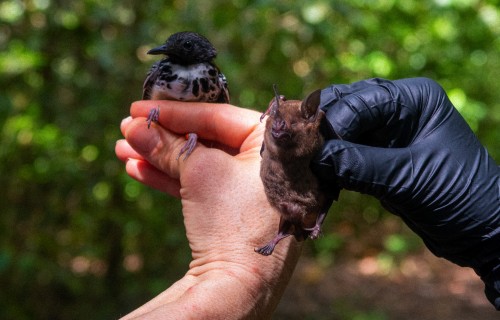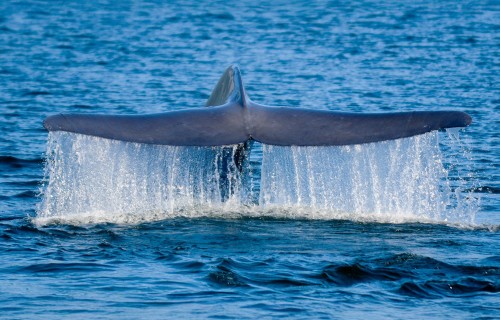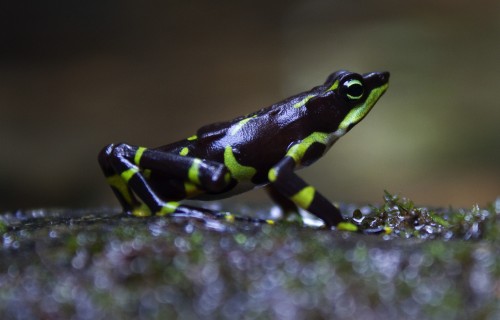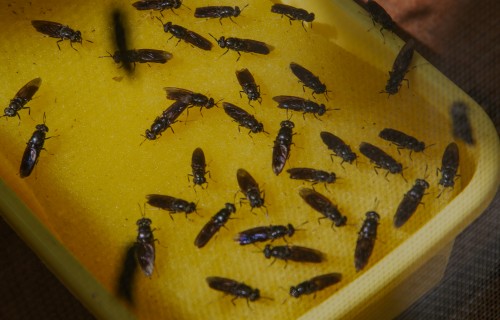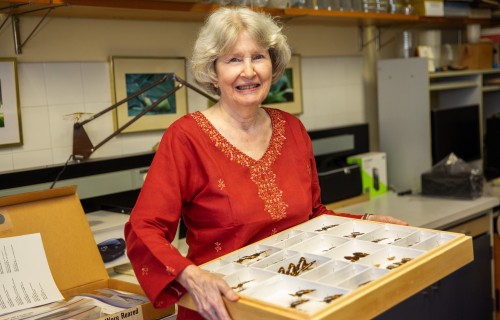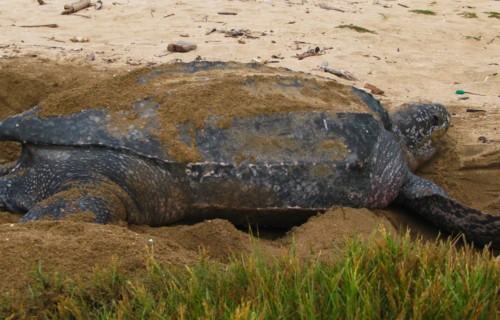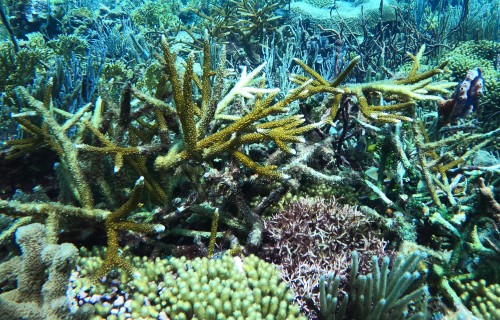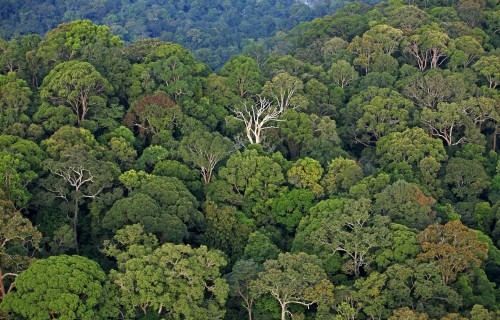Above the tropical forest canopy,
sensors capture the fluxes of gases
between the trees and the atmosphere
Good News
For The
Biggest Fish
Central America protects
whale sharks
Coiba Island, Panama
A binding regional accord protects the world’s largest fish in the New World tropics.
Representatives from Panama, Belize, Costa Rica, El Salvador, Guatemala, Honduras, Nicaragua and the Dominican Republic signed a binding agreement protecting whale sharks in Eastern Pacific and Caribbean waters that took effect on July 1. This conservation plan was drafted based on research by Smithsonian scientist Héctor Guzmán.
The largest fishes in the world, whale sharks grow to 40 feet (12.65 m) and weigh up to 47,000 pounds (21.5 metric tons). The International Union for Conservation of Nature lists these gentle giants as “vulnerable”. According to a study by Guzmán’s research team in which they tagged nearly 50 sharks with satellite tracking devices, whale sharks travel oceanic and coastal routes through waters under the jurisdiction of several countries in the region.
Recognizing that the most effective solution would involve integrative conservation efforts, the Regional Unit for Fish and Aquaculture of the Central American Integration System drafted the international accord. “(The legislation) is binding and the result of the interaction between civil society, the scientific sector, fishermen, national authorities and regional authorities, and a new productive example of the process of Central American integration,” said Mario González Recinos, the regional coordinator of the unit.
In addition, Panama’s Environmental Authority, ANAM, created a whale shark sanctuary in Coiba National Park based on Guzmán’s evaluation of habitat range for the species in the Gulf of Chiriquí and established strict guidelines for tourist and scientific whale shark watching. “This legal tool will be key to regulating activities and the operators that organize groups to watch this species,” said Israel Tejada, the head of ANAM’s Department of Biodiversity and Wildlife. “This initiative is a result of the way the scientific sector advises and guides Coiba National Park’s Executive Committee for the management and conservation of biodiversity in this protected area.”
“The whale-shark watching chaos in Panama prompted us to contribute information to this urgently needed policy to handle visitors and tourists as well as operators. In only three months, in 2014, two operators working between Santa Catalina on the mainland and Coiba Island have hit animals 27 times,” said Guzmán.

